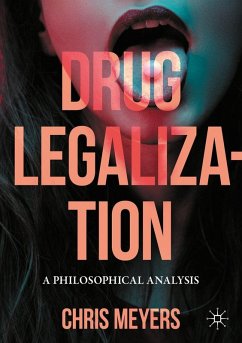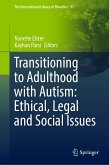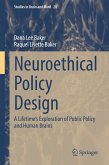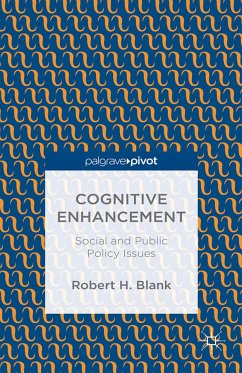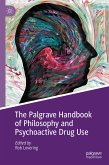This textbook introduces students to the various arguments for and against the prohibition of recreational drugs. The arguments are carefully presented and analyzed, inviting students to consider the competing principles of liberty rights, paternalism, theories of punishment, legal moralism, and the social consequences of drug use and drug laws. Meyers extends this examination by presenting alternatives to the prohibition/legalization dichotomy, including harm reduction, decriminalization, and user licensing or on-premise use.
The presentation invites readers to think clearly about the reasons and principles that should determine public policy and law, while also delving into the deeper philosophical questions underlying the drug prohibition debate. Is it morally wrong to use drugs? If so, would that be reason enough to make it illegal? Are there good reasons in favor of using illicit drugs? Do addicts lack free will, and if so, would it be unjust to punish them? What is (or ought to be) the purpose of punishment? Is the state justified in limiting the freedom of competent adults for their own good? What should be the goal of drug policy, reduced use or reduced harm?
The purpose of the book is twofold. First, it is a review of the arguments for and against drug prohibition, a useful tool for policy makers, activists, and concerned citizens with an understanding of the relevant considerations for determining how we should reform our failing drug policy. Second, the book serves as a case study in the deeper issues of justice, the nature of law, rights and liberties, and the public good. Students studying applied ethics, political science, or public policy will benefit greatly from Meyers' approach.
Dieser Download kann aus rechtlichen Gründen nur mit Rechnungsadresse in A, B, BG, CY, CZ, D, DK, EW, E, FIN, F, GR, HR, H, IRL, I, LT, L, LR, M, NL, PL, P, R, S, SLO, SK ausgeliefert werden.
Es gelten unsere Allgemeinen Geschäftsbedingungen: www.buecher.de/agb
Impressum
www.buecher.de ist ein Internetauftritt der buecher.de internetstores GmbH
Geschäftsführung: Monica Sawhney | Roland Kölbl | Günter Hilger
Sitz der Gesellschaft: Batheyer Straße 115 - 117, 58099 Hagen
Postanschrift: Bürgermeister-Wegele-Str. 12, 86167 Augsburg
Amtsgericht Hagen HRB 13257
Steuernummer: 321/5800/1497
USt-IdNr: DE450055826
Bitte wählen Sie Ihr Anliegen aus.
Rechnungen
Retourenschein anfordern
Bestellstatus
Storno

